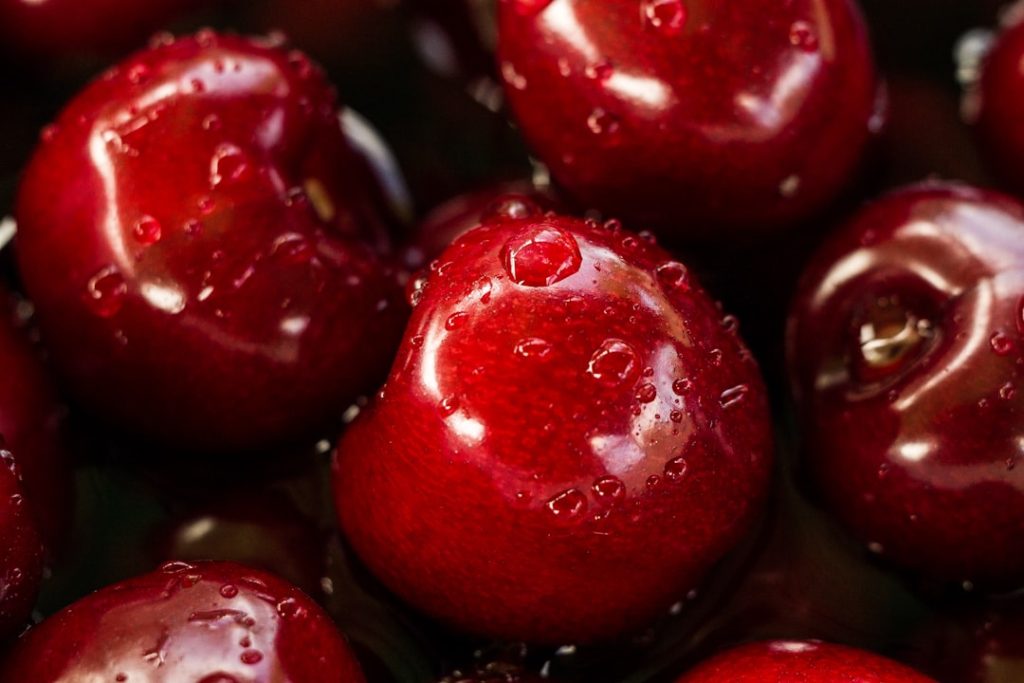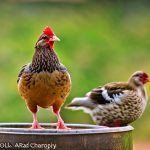Chicken keeping has gained popularity in the UK in recent years, with individuals raising flocks for eggs, meat, or as pets. The practice offers numerous advantages, including a fresh egg supply, natural pest control, and the enjoyment of observing these birds in a garden setting. Chickens are generally low-maintenance animals, making them suitable for those with limited time and space.
Raising chickens can be a fulfilling experience in both rural and suburban environments. When considering chicken keeping in the UK, several important factors must be addressed. It is crucial to understand local regulations and restrictions regarding poultry keeping, as different areas may have specific rules on the number of chickens allowed, coop placement, and noise levels.
Practical considerations include selecting appropriate breeds, providing adequate housing and coop facilities, and ensuring proper nutrition and healthcare. By addressing these aspects, individuals can create a sustainable and enjoyable environment for their chickens.
Table of Contents
- 1 Choosing the Right Breed for Easy Maintenance
- 1.1 Choosing the Right Breed for Easy Maintenance
When it comes to keeping chickens in the UK, selecting the right breed is crucial for a hassle-free experience. With numerous breeds available, each with its unique characteristics and requirements, it’s essential to make an informed decision.
- 1.2 Popular Breeds for Easy Maintenance
- 1.3 Ensuring a Low-Maintenance Experience
- 1.1 Choosing the Right Breed for Easy Maintenance
- 2 Housing and Coop Considerations for Low Maintenance
- 3 Feeding and Nutrition for Low Maintenance
- 4 Health and Care Tips for Low Maintenance
- 5 Common Issues and Troubleshooting
- 6 Conclusion and Final Tips for Keeping Chickens in the UK
- 7 FAQs
- 7.1 What are the easiest chickens to keep in the UK?
- 7.2 What factors make a chicken breed easy to keep?
- 7.3 What are the key considerations when choosing chickens for a backyard flock in the UK?
- 7.4 What are the general care requirements for keeping chickens in the UK?
- 7.5 Are there any specific challenges to keeping chickens in the UK?
Key Takeaways
- Keeping chickens in the UK is a popular and rewarding hobby that requires proper knowledge and care.
- Choosing the right breed of chicken is essential for easy maintenance, considering factors such as temperament and egg-laying capabilities.
- When it comes to housing and coop considerations, prioritizing low maintenance materials and designs can save time and effort.
- Feeding and nutrition play a crucial role in maintaining healthy and low maintenance chickens, with a balanced diet being key.
- Health and care tips, along with common issues and troubleshooting, are important to be aware of to ensure the well-being of the chickens and minimize maintenance challenges.
- In conclusion, keeping chickens in the UK can be low maintenance with the right breed, housing, nutrition, and care, making it a fulfilling and enjoyable experience for hobbyists.
Choosing the Right Breed for Easy Maintenance
Choosing the Right Breed for Easy Maintenance
When it comes to keeping chickens in the UK, selecting the right breed is crucial for a hassle-free experience. With numerous breeds available, each with its unique characteristics and requirements, it’s essential to make an informed decision.
Key Factors to Consider
When selecting a breed for easy maintenance, several factors come into play. Temperament, hardiness, and egg-laying ability are crucial considerations. A breed that is well-suited to the UK climate, friendly, and a good egg producer is ideal.
Popular Breeds for Easy Maintenance
The Rhode Island Red is an excellent choice for those looking for a low-maintenance breed. Known for their hardiness, good egg production, and friendly disposition, they are perfect for beginners. Another popular breed is the Sussex, which comes in a variety of colors and is renowned for its calm nature and reliable egg production. For those who prefer a dual-purpose breed suitable for free-ranging, the Orpington is a great option. These birds are known for their large size, gentle temperament, and excellent egg-laying ability.
Ensuring a Low-Maintenance Experience
By choosing a breed that is well-suited to your needs and environment, you can ensure a low-maintenance and enjoyable experience with your flock. With the right breed, you can sit back and enjoy the benefits of chicken keeping without the hassle.
Housing and Coop Considerations for Low Maintenance

When it comes to keeping chickens in the UK, providing suitable housing and coop facilities is essential for low maintenance. A well-designed coop not only provides a safe and comfortable environment for your chickens but also makes daily care and maintenance easier for you. When planning your chicken coop, it’s important to consider factors such as size, ventilation, predator protection, and ease of cleaning.
For low maintenance housing, it’s important to provide ample space for your chickens to move around and stretch their wings. A general rule of thumb is to allow at least 2 square feet of space per bird inside the coop, with an additional 8-10 square feet per bird in an outdoor run. Good ventilation is also crucial for maintaining a healthy environment inside the coop, so be sure to include plenty of windows or vents to allow fresh air to circulate.
Additionally, it’s important to consider predator protection when designing your coop, as foxes, rats, and other animals can pose a threat to your flock. Finally, ease of cleaning is essential for low maintenance housing, so be sure to include features such as removable roosts and nesting boxes, as well as easy access to the coop floor for regular cleaning. In addition to the coop itself, it’s important to provide suitable outdoor space for your chickens to roam and forage.
A secure outdoor run or free-ranging area will not only provide exercise and enrichment for your birds but also help to reduce the amount of time and effort required for daily maintenance. By providing a well-designed coop and outdoor space for your flock, you can create a low-maintenance environment that is both practical and enjoyable.
Feeding and Nutrition for Low Maintenance
Feeding and nutrition are essential aspects of keeping chickens in the UK, and providing a balanced diet is crucial for low maintenance. A well-rounded diet not only supports overall health and egg production but also reduces the risk of common health issues and minimizes the need for supplemental care. When it comes to feeding your flock, it’s important to provide a high-quality commercial feed as the foundation of their diet, supplemented with fresh fruits and vegetables, as well as access to grit and oyster shell for calcium.
A good quality commercial feed should provide all the essential nutrients that your chickens need, including protein, carbohydrates, vitamins, and minerals. Look for a feed that is specifically formulated for laying hens, as this will provide the right balance of nutrients to support healthy egg production. In addition to commercial feed, it’s important to supplement your chickens’ diet with fresh fruits and vegetables, such as leafy greens, carrots, and berries.
These treats not only provide additional nutrients but also help to keep your flock entertained and engaged. In addition to providing a balanced diet, it’s important to ensure that your chickens have access to grit and oyster shell at all times. Grit helps chickens to digest their food properly by grinding it down in their gizzards, while oyster shell provides essential calcium for strong eggshells.
By providing a well-rounded diet that meets all of your chickens’ nutritional needs, you can help to minimize the risk of health issues and ensure that your flock remains healthy and low maintenance.
Health and Care Tips for Low Maintenance
Maintaining the health and well-being of your flock is essential for low maintenance chicken keeping in the UK. By taking proactive measures to prevent common health issues and providing regular care and attention, you can help to minimize the need for intensive veterinary care and ensure that your chickens remain healthy and happy. When it comes to health and care tips for low maintenance chicken keeping, there are several key factors to keep in mind.
First and foremost, it’s important to practice good biosecurity measures to prevent the spread of disease within your flock. This includes regularly cleaning and disinfecting the coop and equipment, as well as quarantining new birds before introducing them to your existing flock. Additionally, it’s important to monitor your chickens regularly for signs of illness or injury, such as changes in behavior, appetite, or egg production.
By catching potential health issues early on, you can take proactive measures to address them before they become more serious. In addition to proactive measures, it’s important to provide regular care and attention to your flock to ensure their overall well-being. This includes providing clean water at all times, regularly cleaning the coop and nesting boxes, and checking for signs of parasites or other pests.
Additionally, it’s important to provide regular dust baths or access to dust bathing areas to help keep your chickens’ feathers clean and free from mites or lice. By providing regular care and attention to your flock, you can help to minimize the risk of common health issues and ensure that your chickens remain healthy and low maintenance.
Common Issues and Troubleshooting

Egg Production Problems
One common issue that chicken keepers may encounter is egg production problems. This can be caused by a variety of factors, including age, stress, or nutritional deficiencies. If you notice a decrease in egg production from your hens, it’s important to evaluate their diet, environment, and overall health to identify any potential issues. Providing a balanced diet, reducing stressors in the environment, and ensuring regular access to clean water can help to support healthy egg production.
Predator Attacks
Another common issue that may arise is predator attacks on your flock. Foxes, rats, birds of prey, and other animals can pose a threat to your chickens, especially if they are allowed to free-range unsupervised. To prevent predator attacks, it’s important to secure the coop with sturdy fencing or wire mesh and provide adequate predator protection measures such as motion-activated lights or alarms.
Respiratory Issues
Additionally, respiratory issues such as coughing or sneezing can be a common problem in chickens. This can be caused by poor ventilation in the coop or exposure to drafts or damp conditions. Ensuring good ventilation in the coop and providing a dry environment can help to prevent respiratory issues from occurring.
By being aware of these common issues and knowing how to troubleshoot them effectively, you can help to maintain a low-maintenance environment for your flock and ensure that they remain healthy and happy.
Conclusion and Final Tips for Keeping Chickens in the UK
In conclusion, keeping chickens in the UK can be a rewarding experience that provides fresh eggs, natural pest control, and the joy of raising these charming birds. By choosing the right breed for easy maintenance, providing suitable housing and coop facilities, offering a balanced diet with proper nutrition, practicing good biosecurity measures for health care tips with regular care attention you can create a low-maintenance environment that is both practical and enjoyable. When keeping chickens in the UK it’s important to be aware of common issues that may arise from time to time such as egg production problems predator attacks respiratory issues among others by knowing how troubleshoot them effectively you can help minimize their impact on your flock maintaining low-maintenance environment.
Finally some final tips for keeping chickens in the UK include familiarizing yourself with local regulations regarding poultry keeping choosing breeds suited UK climate providing suitable housing facilities balanced diet practicing good biosecurity measures regular care attention being aware common issues troubleshooting effectively by taking these factors into account you can create an enjoyable low-maintenance environment for your feathered friends
If you’re looking for the easiest chickens to keep in the UK, you may also be interested in learning about the benefits of using a Snaplock chicken coop. This article from Poultry Wizard discusses the advantages of using a Snaplock coop, which is designed to be easy to assemble and maintain, making it a great option for beginners or those looking for a low-maintenance coop. Check out the article here for more information.
FAQs
What are the easiest chickens to keep in the UK?
The easiest chickens to keep in the UK are typically breeds that are known for their docile nature, hardiness, and low maintenance requirements. Some popular choices include the Rhode Island Red, Sussex, Orpington, and Wyandotte.
What factors make a chicken breed easy to keep?
Easy-to-keep chicken breeds are typically known for their ability to adapt to various climates, resistance to common poultry diseases, and calm temperament. They also tend to be good layers and require minimal special care or attention.
What are the key considerations when choosing chickens for a backyard flock in the UK?
When choosing chickens for a backyard flock in the UK, it’s important to consider factors such as climate suitability, egg-laying capacity, temperament, and space requirements. Additionally, local regulations and restrictions on poultry keeping should be taken into account.
What are the general care requirements for keeping chickens in the UK?
General care requirements for keeping chickens in the UK include providing a secure coop and run, access to fresh water and a balanced diet, regular health checks, and protection from predators. Additionally, chickens should be given space to roam and engage in natural behaviors.
Are there any specific challenges to keeping chickens in the UK?
Some specific challenges to keeping chickens in the UK include the variable weather conditions, potential for predators such as foxes and birds of prey, and compliance with local regulations regarding poultry keeping. Additionally, biosecurity measures may need to be implemented to prevent the spread of diseases.

Meet Walter, the feathered-friend fanatic of Florida! Nestled in the sunshine state, Walter struts through life with his feathered companions, clucking his way to happiness. With a coop that’s fancier than a five-star hotel, he’s the Don Juan of the chicken world. When he’s not teaching his hens to do the cha-cha, you’ll find him in a heated debate with his prized rooster, Sir Clucks-a-Lot. Walter’s poultry passion is no yolk; he’s the sunny-side-up guy you never knew you needed in your flock of friends!


Meet Walter, the feathered-friend fanatic of Florida! Nestled in the sunshine state, Walter struts through life with his feathered companions, clucking his way to happiness. With a coop that’s fancier than a five-star hotel, he’s the Don Juan of the chicken world. When he’s not teaching his hens to do the cha-cha, you’ll find him in a heated debate with his prized rooster, Sir Clucks-a-Lot. Walter’s poultry passion is no yolk; he’s the sunny-side-up guy you never knew you needed in your flock of friends!







